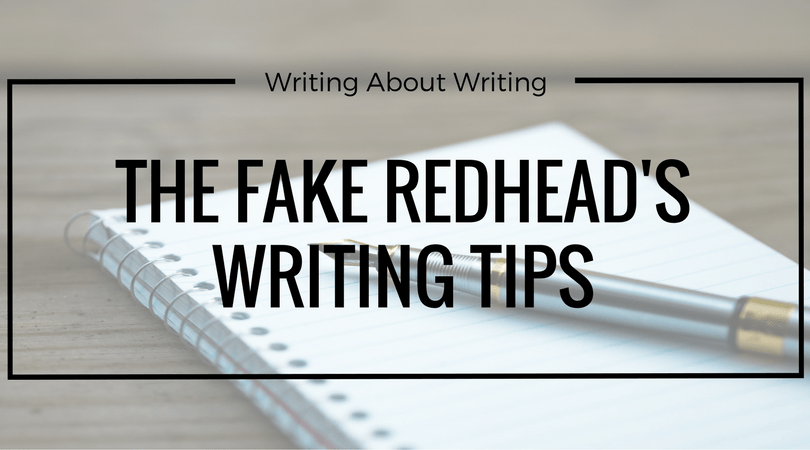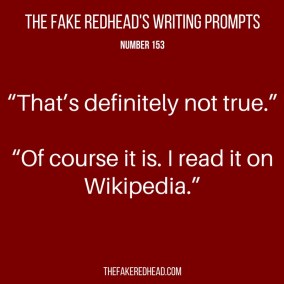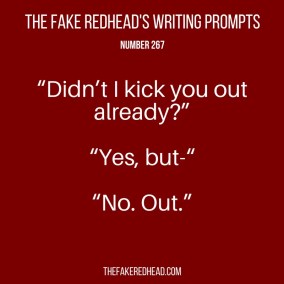Writing Tips | Find Your Next Favorite Book | Prompt Library | Shop The eBooks
Don’t Fear Your Crutch Words
Don’t fear your crutch words.
Scroll back up and read that again.
Okay, first things first, what are crutch words?
According to Dictionary.com by way of the Google, in speech, crutch words are words that we slip into sentences to give ourselves more time to think, or to emphasize a sentence. They become instinctual, and add little to no meaning to a statement.
Everyone who’s been through high school and college knows that crutch words are the things that got you to the word/page length requirement of all your research papers*. And speaking of this, the HILARIOUS Instagram account, HipDict, just defined an essay as: Taking ten pages to explaining something that could have been explained in two sentences.
Timing, am I right?
Also according to Dictionary.com, six words that can ruin your sentence are: actually, literally, basically, honestly, like, and obviously.
Obviously, obviously is one of my top crutch words (if you haven’t figured that out by now, you should hop on over to the Writing Tips page (don’t worry, the link opens to a new window) and read my other posts. You’ll get the picture pretty quickly). My other crutch words include actually, literally, basically, and, of course, like.
Also, ‘of course’ is one of my crutch words (or phrases, if we want to be technical about it), along with ‘really’ and ‘probably’ and ‘well’. And considering I just sent a text featuring the word ‘definitely’, let’s add that to the list too.
If you haven’t figured out that these were some of my crutch words by now, well, now you know.
Another of mine that I use a lot, especially when I’m talking, is the term ‘funsies’, which someone recently said the they had no idea was still a word that people used in conversation.
Now, considering that I have very little by way of shame about the things I like and how I act and speak, I don’t care if people thing that my personal speech quirks are…quirky. I also have little by way of shame when it comes to just about everything else in my life, considering that, while I was writing this piece, I took a quick break and retweeted a gif of Sailor Moon’s season one transformation sequence with the hashtag #FormativeMomentsFromMyChildhood, which is something I never would have publicly admitted a few years ago.
My love for Sailor Moon (and Power Rangers, obviously) was one of my deeply buried shames for YEARS until I realized that I absolutely do not have reason to give ANY f*cks about what people think about the things I like.
But Sailor Moon and her quest to defend the world and love and justice from the forces of evil aside, click the Continue Reading button for the ONE reason (and a bonus!) why you shouldn’t fear your crutch words when you’re starting out writing your novel.
1 Because You Have Better Things To Do
Seriously, you have SO many better things to do than spending your time worrying about the words you’re using to take your manuscript from 0 to 90,000 words*****.
You have a novel to write, so write it.
Worry about the rest (crutch words, plot holes, that dang fight scene) when you’re done, because in my opinion, that’s the only good way to go about it.
I know I say this a lot, but one of the most important thing I try to emphasize to writers and people who want to be writers (you want to be a writer? Boom, you’re a writer) is that no one’s first draft is going to be perfect.
You can throw in 400 uses of the word ‘really’ or ‘obviously’ or ‘probably’, but it’s fine, because you’re probably going to see those pretty much****** immediately when you’re editing, and then you’ll find other, BETTER, ways to phrase whatever it is you’re saying.
And, of course, most of these ways include putting in more ‘show’, rather than ‘tell’.
Remember the post 2 Tips For Introducing Your Protagonist? Yeah. I still stand by NOT doing that thing******* I wrote at the beginning. Don’t do that.
As long as you get the words out on paper, you’re going to have a framework for a story full of beginnings and middles and endings and foreshadowing and plot twists and romance (or awkward stumbling toward the feels) and surprises and maybe gore, guts, and violence, if that’s up your alley.
And that’s awesome. That’s your start and that’s where you take a bunch of words and phrases that are organized into an AWESOME******** story.
Bonus! But How Do You Find YOUR Crutch Words?
Now, I’ve been writing for pretty much my entire life, and obviously, you can all see what my crutch words are.
The asterisks make it really easy to identify, don’t they? And I didn’t even get them all, or we’d never get to the end of this post.
There’s a great chance that YOUR crutch words might not be the same as MY crutch words, so how do you go about finding them?
My favorite thing to do is to take my manuscript and toss it into the program Scrivener (which happens to be the program that I’m currently typing this post in).
Now, I choose to write my manuscript in MS Word, but I LOVE Scrivener for a LOT of reasons, including the fact that I can copy my stuff into it and break it up into scenes that are easier to move around, find and modify.
Also in Scrivener, I can access my Text Statistics, including the all-important Word Frequency. There, I can toggle it to show me my most commonly used words in the #WhoIsTalyaNightingale manuscript. Remember in 2 Reasons Not To Be Afraid To Use Your Protagonist’s Name In Your Novel, where I wrote that I used Talya Nightingale’s first name over 700 times in the most recent draft (and there’s NOTHING wrong with that)?
Well, Scrivener’s Text Statistics menu was how I figured that out.
Not only did it show me how many times I used Talya’s name, but it also showed me the other words I used just as often (for some words, see: too often). And those are the words that I should either minimize or remove.
But if you don’t have Scrivener? Well, I can list the reasons why you should invest in it, but you can also do this in Word, Pages, or the plain text editor. All you have to do is take some pages and READ THEM ALOUD. When you read something out loud, you can easily pick up on the words that you use often, and how they really don’t add anything important to your text.
Also, and I know this works in Word, but if you find a word you use often, like ‘really’, you can type that in to the find bar and it’ll highlight that word and also show you how many times you’ve used it. Unlike Scrivener, you’re going to have to find those words yourself, but as you edit, and especially if you read aloud, the words you use often will jump out at you and you’ll be able to figure out how to go about correcting those issues to make your writing stronger.
Check Out The Last Writing Tip Check Out The Next Writing Tip
Shop The eBooks | Find Your Next Favorite Book
Want more prompts? Check out the Prompt Library.
*That, or the thing where you make the font size of your periods one size bigger than the rest of the text. Because screwing with the margins is way too obvious.**
**This is not legitimate academic advice. I am not the academic mentor you are looking for. Don’t be like me.***
***In this specific instance. As a writer, being like me is kind of awesome. I’m really good at what I do.****
****Yes, my ego is massive. No, I don’t have trouble fitting through narrow doorways.
*****Or whatever the final desired length of your story is going to be.
******Oh look, another crutch phrase
*******That’s another crutch I use a LOT, especially in speech. It’s a thing.
********Boom, another one
Do you have a question about writing that you want me to answer? Leave a comment below! (I’m also answering questions in the Facebook group. Hop on over and say hi!)






